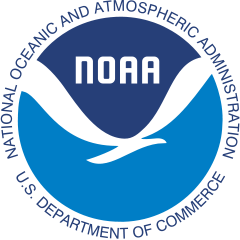December 20th, 2008
Yi Ming, research physical scientist at GFDL, was just named a recipient of the Presidential Early Career Award for Scientists and Engineers (PECASE). The Presidential Award is the highest honor bestowed by the U.S. government to recognize and support the extraordinary achievements of young professionals at the outset of their independent research careers in science and technology.
This award recognizes Dr. Ming for the depth and breadth of his accomplishments since earning his graduate degree from Princeton University in 2003, including seventeen publications in major journals. Dr. Ming’s pioneering research is pushing the frontiers of science in aerosol climate forcing. He is helping to answer important questions about the climate and human health impacts associated with emissions of particulate air pollutants. The citation for his award noted his “outstanding scientific advancements leading to reliable quantification of the aerosol forcing of global climate change, and effectively communicating the results to Federal agencies, key scientific bodies, academia, and private sector.”
Dr. Ming also teaches aerosol physics and climate impacts in the Atmospheric and Oceanic Sciences graduate program at Princeton University, serves on numerous scientific committees, and has presented invited talks at international meetings. In 2003, he completed a National Science Foundation Science Policy Fellowship while also earning a certificate from the Woodrow Wilson School of Public and International Affairs.
GFDL is fortunate to have such an exceptional scientist in our ranks, and this recognition of both Dr. Ming’s accomplishments and his potential is well deserved. With this distinction, he joins GFDL oceanographer Gabriel Vecchi, and physical scientist Arlene Fiore, who received PECASE awards in 2004 and 2006, respectively.
The PECASE program was established in 1996 to honor scientists and engineers who show exceptional potential for leadership early in their careers. Eight federal departments and agencies annually nominate candidates whose work shows the greatest promise to benefit the agency’s mission. Participating agencies award these scientists and engineers up to five years of funding to further their research in support of critical government missions.


